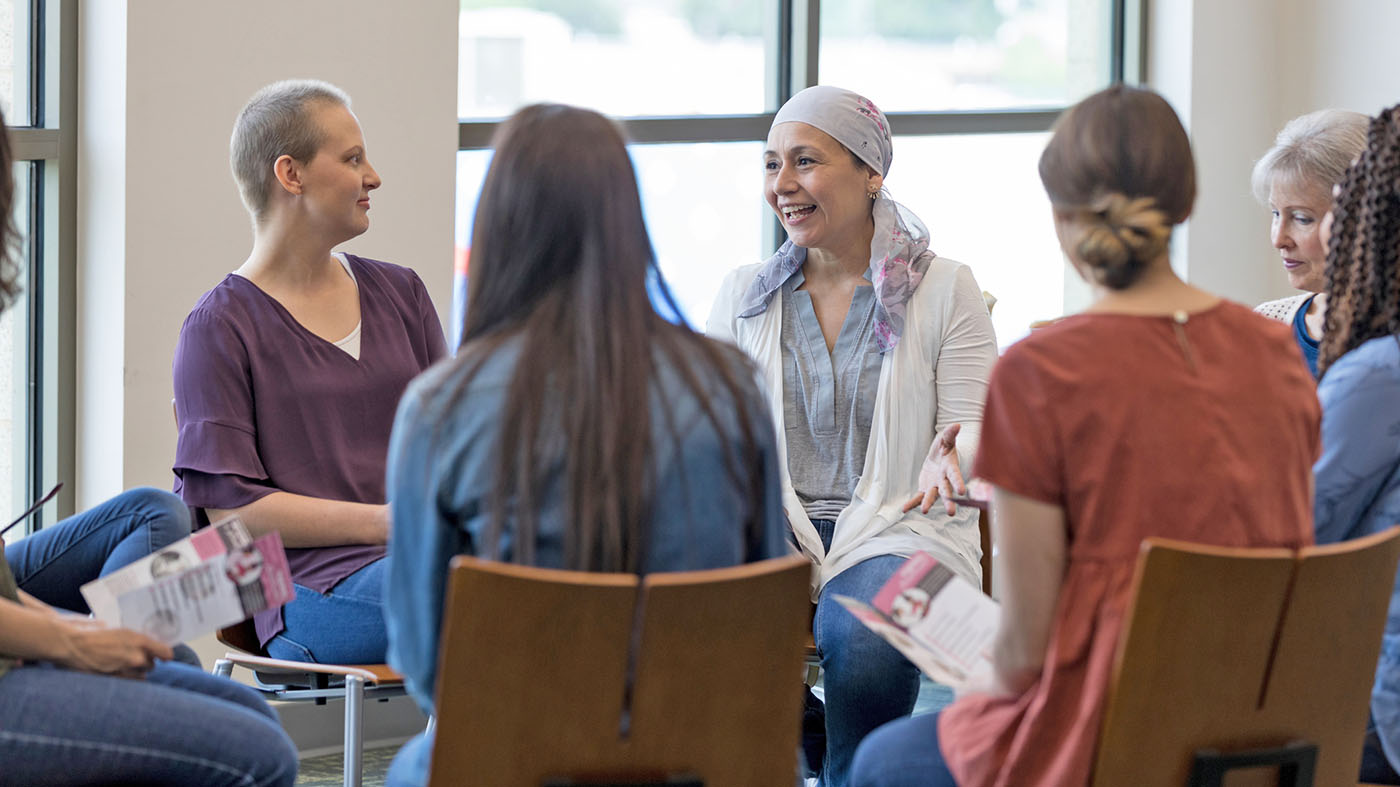In the ever-evolving landscape of health care, there is a new initiative hoping to make a significant impact on the lives of women Veterans facing cancer.
The Center for Oncology Outcomes Review and Gender Equity (COURAGE) is the latest addition to VA’s Breast and Gynecologic Cancer System of Excellence (BGSOE), and it comes with a bold mission: to improve cancer care for women Veterans while addressing sex and gender disparities within care delivery.
COURAGE’s establishment stems from the growing population of women Veterans seeking care at VA facilities. The primary goal is to capture and improve data structures for women within the VA health care system.
Dr. Leah Zullig, the COURAGE director, shared her insights into the center’s purpose, goals and the critical work they are undertaking to enhance the lives of women Veterans.
“Our primary mission at COURAGE is to improve cancer care for women Veterans,” Zullig said. “This includes addressing sex and gender disparities, developing tailored care approaches and implementing thoughtful changes in health care delivery. We aim to create a community of researchers and providers dedicated to innovation and evaluation, particularly in the field of women’s cancers.”
What Veterans should know about COURAGE
VA is actively working to ensure the highest cancer care quality for women Veterans with cancer and to tailor breast and gynecologic cancer care services to their needs. COURAGE is focused on mapping the existing evidence about care quality, experiences and preferences of women Veterans with cancer.
COURAGE also aims to:
- Prioritize communication between primary care providers and oncologists, ensuring a seamless coordination of care;
- Actively explore ways to alleviate barriers to care, such as transportation and travel, which can hinder access to care;
- Embrace telehealth solutions to make health care more accessible, especially for Veterans with families.
Building on existing investigative capabilities
COURAGE is already building on existing investigative capabilities with ongoing scoping reviews and evidence mapping projects. These initiatives aim to understand the best available evidence regarding cancer care for women Veterans and identify gaps in knowledge.
One crucial aspect of their work is creating a national report on cancer incidence among women Veterans treated at VA facilities. This report will examine factors such as the stage of cancer, whether these women are screened at VA centers and whether they transitioned to VA from the Department of Defense at the point of discharge.
They are conducting qualitative inquiries to better understand the experiences of women Veterans accessing care at VA facilities. These studies explore the unique challenges and gender-related issues Veterans may face.
Serving the approach to equitable cancer care
COURAGE aligns seamlessly with BGSoE’s approach to equitable cancer care. While BGSoE focuses on providing a “warm touch” through patient navigators, COURAGE aims to understand why women Veterans may choose to opt in or out of this type of VA health care service. This approach ensures care is not only available but also attuned to the unique needs of women Veterans.
“We are truly excited about the launch of COURAGE. This initiative addresses a critical need in our health care system by focusing on the unique health care requirements of women who represent the fastest-growing demographic in the Veteran population,” said Dr. Haley Moss, BGSoE director and gynecologic oncologist at Durham VA.
Partnerships and ongoing projects
COURAGE is not working in isolation. The center has advisor support from VA Women’s Health Practice-Based Research Network as well as leaders from VA’s National Oncology Program. They are also collaborating with other health disparity focused researchers from institutions like Harvard, reinforcing VA’s commitment to robust, interdisciplinary research.
Learn more about cancer care and VA
Veterans are strongly encouraged to talk to their VA provider about the need for different cancer screenings and what screening options are available.
To learn more about how VA works shoulder to shoulder with strategic partners to expand access and reduce barriers to cancer care at VA, visit cancer.va.gov.
Visit My HealtheVet to learn tips and tools to help you partner with your health care team so together you may work to manage your health.
Topics in this story
More Stories
As severe weather threatened Mississippi, local news warned of a dangerous outbreak of tornadoes. A VA nurse stepped up.
Dorothy “Pat” Rudd, 103, World War II Navy Veteran, has lived a life of service, pioneering the way for women in the military.
VA employees help return WWII items to two brothers’ families. Both brothers were WWII Veterans.







As a female veteran and breast cancer survivor, one of the main issues is recovery, ongoing support that includes counseling and resources.